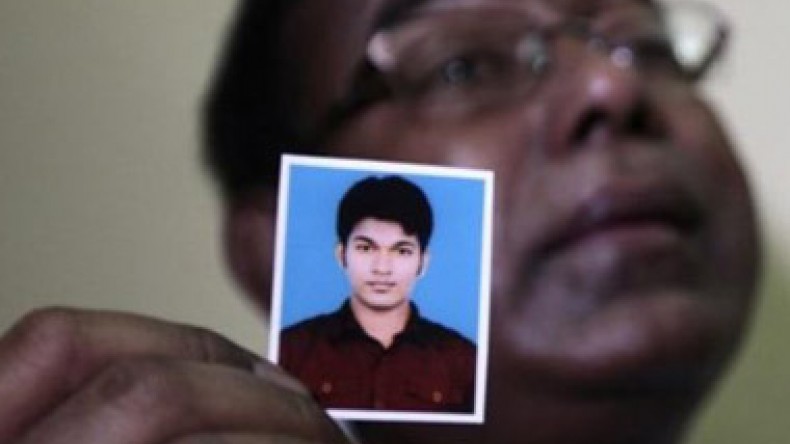
Bangladesh father denies son involved in New York bomb plot
The father of a Bangladeshi man accused of attempting to blow up the New York Federal Reserve Bank denied on Thursday that his son was involved and said he was the victim of a "racist conspiracy."
According to Reuters, Quazi Mohammad Rezwanul Ahsan Nafis, 21, was arrested on Wednesday in New York and faces charges of attempting to use a weapon of mass destruction and attempting to provide material support to al Qaeda.
"This is nothing but a conspiracy. There is still a racist conspiracy there," his father, Quazi Mohammad Ahsanullah, told reporters in the Bangladeshi capital Dhaka.
"The intelligence of the USA is playing with a mere boy whom we sent for higher study. The allegation against my son is not true at all. He could not even drive a car. How was he caught with a van?"
Nafis appeared in a Brooklyn court on Wednesday. The criminal complaint against him said he had entered the United States in January and that he had said he was in contact with members of al Qaeda overseas.
The complaint said he had traveled by van with a man to a New York warehouse where Nafis assembled what he thought was a 1,000-pound (450-kg) bomb.
The man he believed to be an accomplice was in fact an undercover agent working for the FBI and the explosives were not in working condition. He was arrested later in a hotel near the bank.
Nafis had been a business student at North South University, a prestigious private institution in Bangladesh, before leaving to study computer science in the United States.
Officials at Southeast Missouri State University said they were assured by the FBI that the school was never threatened by Nafis, who was enrolled in a new cyber security curriculum from January through May.
"We are very dismayed and concerned that a former Southeast student would be involved in an alleged act of terrorism," university President Kenneth Dobbins said on Thursday in a letter to staff and students.
Student Jim Dow, who knew Nafis, told KFVS-TV in Cape Girardeau, Missouri, that Nafis did not speak badly about the United States but harbored some frustration over employment.
"The only thing I ever heard him say he didn't like about the United States is he didn't have enough money and he couldn't get a job, being on a student visa," Dow said.
Newsfeed
Videos






























